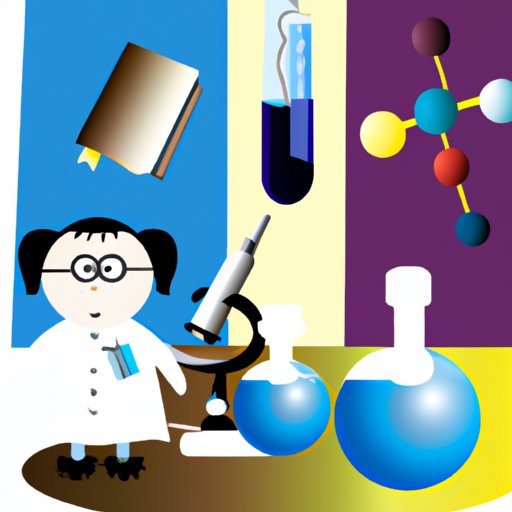Introduction
Science is the study of the natural world and how it works. It encompasses a broad range of topics, including biology, physics, chemistry, astronomy, geology, ecology, and more. In this article, we will explore why it is important to learn science, and how it can be applied to everyday life.
Understanding the Scientific Method
The scientific method is a process that scientists use to answer questions and solve problems. It involves making observations, forming hypotheses, conducting experiments, analyzing data, and drawing conclusions. By following this process, scientists are able to gain a better understanding of the natural world, and develop new technologies and medicines.

Applying Science to Everyday Life
Science can be applied to almost every aspect of our lives, from the food we eat to the clothes we wear. For example, when we cook a meal, we are using science to understand how heat affects the ingredients, or when we wash our clothes, we are using science to understand the chemical reactions that occur when detergent is mixed with water. By applying science to everyday activities, we can make better decisions and improve our quality of life.
Exploring the Natural World
Gaining knowledge about the natural world can help us understand how it works, and how we can protect it. By studying science, we can learn about the different species of plants and animals, and how they interact with their environment. We can also learn about the impacts of climate change and other human activities on ecosystems, and how we can reduce these impacts.
Improving Technology and Medicine
Science has played a major role in the development of modern technology and medicine. Through research and experimentation, scientists have been able to create new devices and treatments that have revolutionized the way we live. From smartphones to cancer treatments, science has enabled us to improve our health and wellness, and enhance our quality of life.
Developing Critical Thinking Skills
By learning science, we can develop our critical thinking skills. Critical thinking is the ability to think logically and rationally, and to evaluate arguments and evidence. By engaging in scientific inquiry, we can learn to ask relevant questions, analyze data, and draw logical conclusions. This can help us make better decisions in our everyday lives.
Understanding the Impact of Science on Society
Science has had both positive and negative impacts on society. On one hand, science has allowed us to make incredible advances in technology and medicine, improving our quality of life. On the other hand, it has also caused some unintended consequences, such as environmental pollution and global warming.
Solving Environmental Problems
Environmental problems, such as climate change and air pollution, are becoming increasingly serious. To address these issues, we need to use science to understand their causes, and develop solutions that are both effective and sustainable. Scientists have already made great strides in this area, but there is still much work to be done.
Conclusion
In conclusion, learning science is essential for understanding the natural world, advancing technology and medicine, developing critical thinking skills, and solving environmental problems. By gaining a better understanding of science, we can make better decisions, improve our quality of life, and ensure a brighter future for generations to come.
(Note: Is this article not meeting your expectations? Do you have knowledge or insights to share? Unlock new opportunities and expand your reach by joining our authors team. Click Registration to join us and share your expertise with our readers.)
